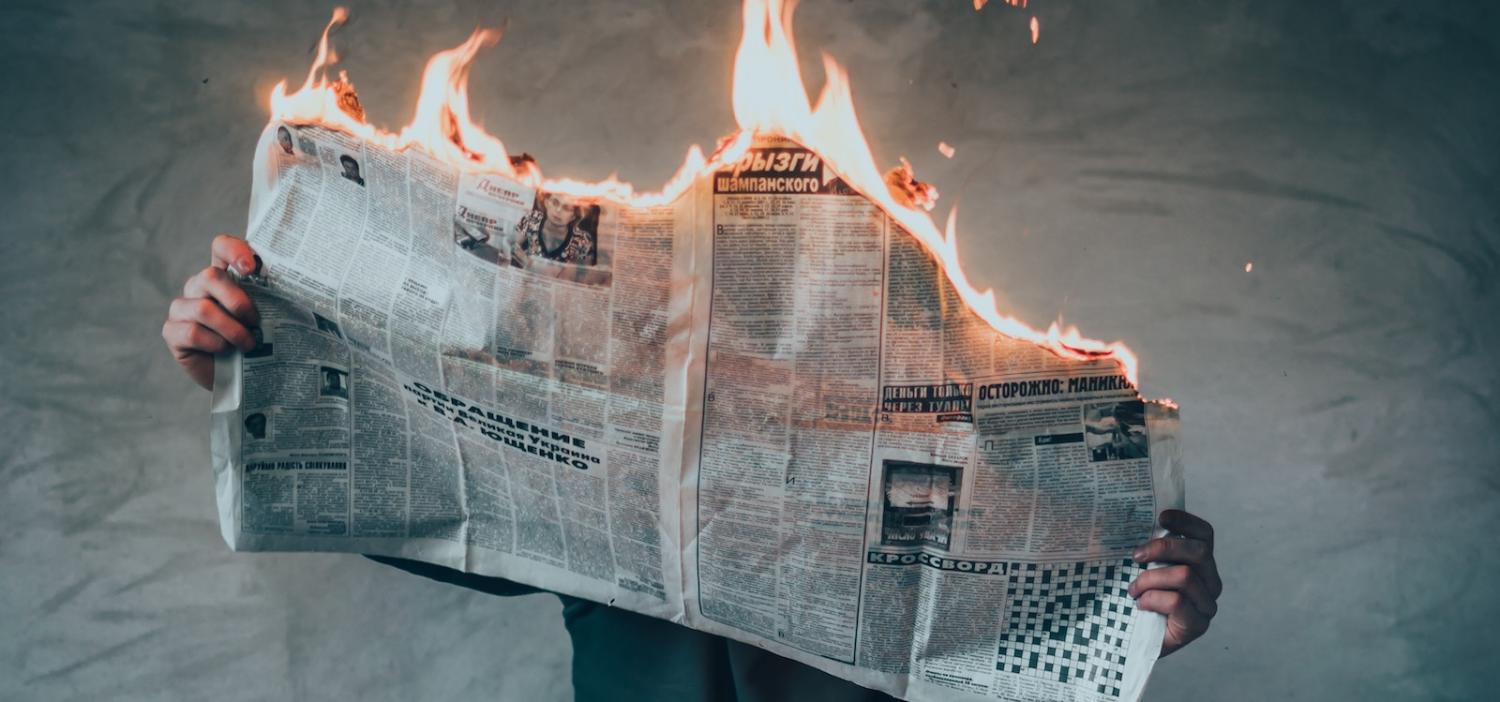The past 12 months have been particularly grim for press freedom in Southeast Asia.
Independent news outlets and critical journalists have faced censorship, arrests, and beatings as increasingly autocratic rulers crackdown on dissent. Several of these leaders have gleefully appropriated the US administration’s “fake news” in their crusade against the media.
Cambodia’s government is energetically silencing critics. Cambodia Daily closed in 2017 under pressure from the Hun Sen government and things only got worse in 2018 when The Phnom Penh Post was sold to a new owner who curbed investigative journalism. Erin Handley:
What we saw yesterday was a scene of mourning, not only for those who are no longer with the Post, but also for the paper’s editorial independence and, more broadly, for press freedom in Cambodia.
Wa Lone and Kyaw See Ow, journalists for Reuters, who have been jailed in Myanmar for investigative reporting into aspects of the persecution of the Rohingya turned the spotlight onto the country’s weak justice system. Elliot Brennan:
The Reuters case highlights the deeper structural problems stymying Myanmar’s democratic transition. A gaping hole in this transition is the development of the country’s institutions. Last year’s assassination of U Ko Ni, a champion of the rule of law, was a clear sign of resistance to the empowering of institutions that could safeguard emerging norms. Along with the rule of law, Myanmar’s institutions have failed dismally to protect press freedom. This has allowed rumour to return with a vengeance in Myanmar.
Aung San Suu Kyi defended the two reporters’ sentencing. The seven years they face in prison is emblematic of Myanmar’s worsening climate for independent journalism. Three other Myanmar journalists were arrested in October alone. But freedoms fell to a new low when a self-proclaimed anti-Rohingya supporter, Rick Heizman, was welcomed with open arms. Melissa Crouch:
Heizman’s lone-wolf anti-Rohingya antics have seemingly been embraced by a range of local institutions and officials – the University of Yangon, the Ministry of Foreign Affairs, policy think-tank the Myanmar Institute of Strategic and International Studies, and the Rakhine National Races Affairs Minister in Yangon.
Meanwhile, in Vietnam, the government continued to aggressively shut down independent bloggers and writers. Dissident blogger ‘Mẹ Nấm,’ or Mother Mushroom, was quietly released, on the condition of her exile to the United States. Hunter Marston argues that the episode reveals more about Hanoi’s insecurities than any political awakening or relaxation of its repressive security apparatus:
Mother Mushroom was arrested on charges of spreading propaganda against the state under Article 88 of Vietnam’s Penal Code and gained prominence for criticising the government’s mismanagement of the Formosa steel plant toxic spill in Ha Tinh province on her blog in 2016.
The timing of her release during Mattis’ visit was likely meant both to reduce media attention on the story while signalling to the US that Hanoi was willing to show flexibility to Washington’s human rights concerns. Though Hanoi released Mother Mushroom, it has detained numerous other activists, bloggers, and lawyers.
Alexandra Wake provides a roundup of the use of fake news by authoritarian governments across Southeast Asia to clampdown on media freedoms and wind back democratic gains:
All countries in the Association of Southeast Asian Nations fell into the bottom third of the World Press Freedom Index, including countries once lauded as having the freest presses in the region, such as Thailand and the Philippines.
While nobody can predict the future, two things are fairly certain: the media across Southeast Asia is not optimistic about the future of press freedom; and democracy, as Australia wants it to operate in our region, is in great peril.
Media censorship makes bad governments less accountable. For many in Southeast Asia, that’s the point.
